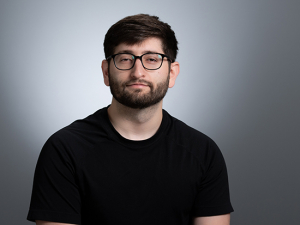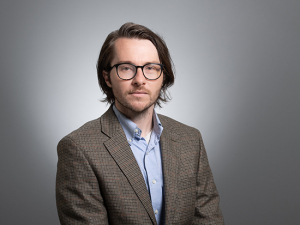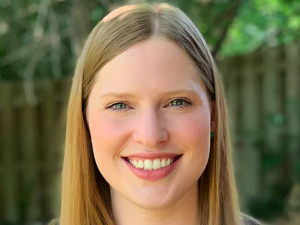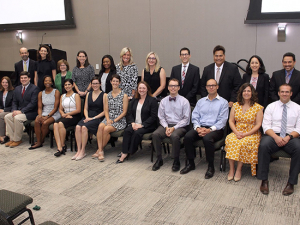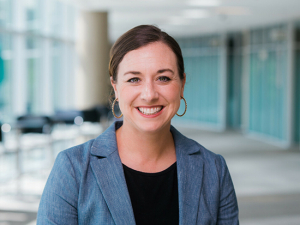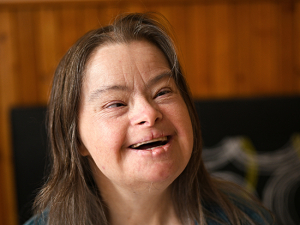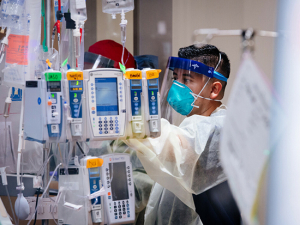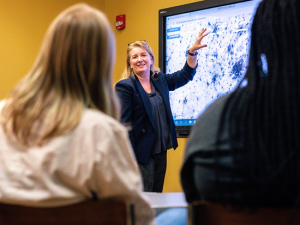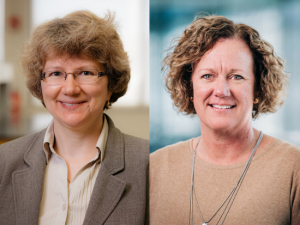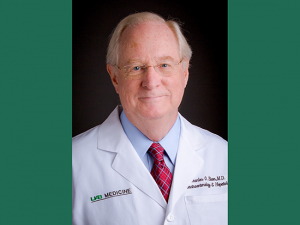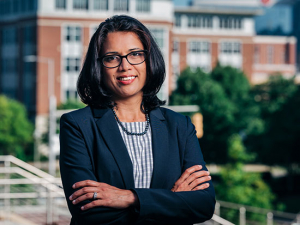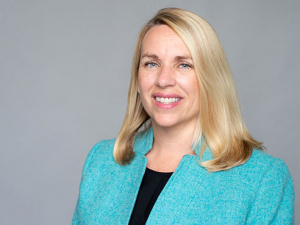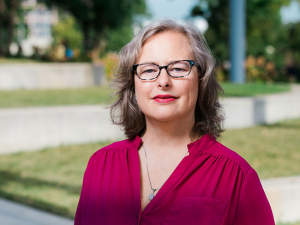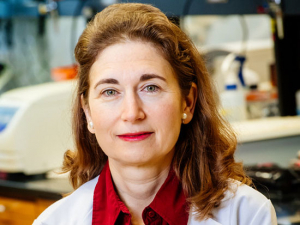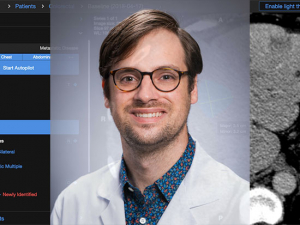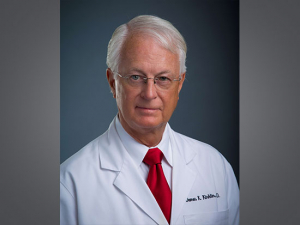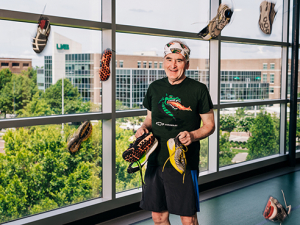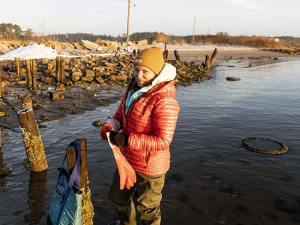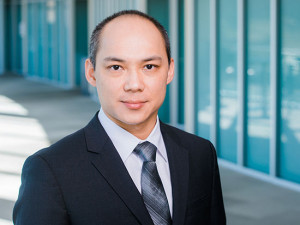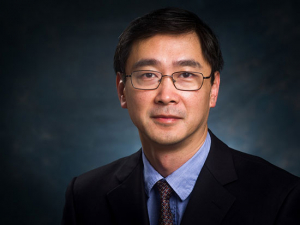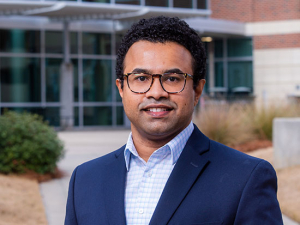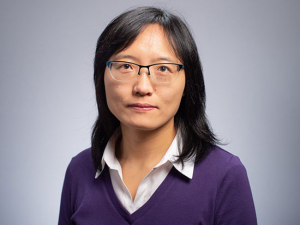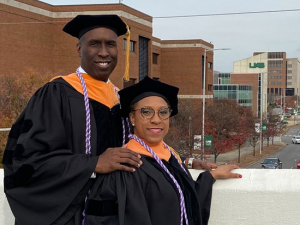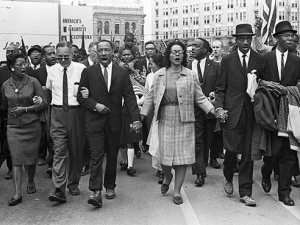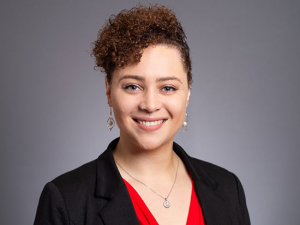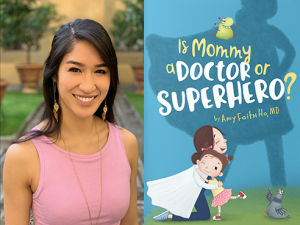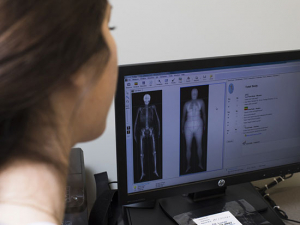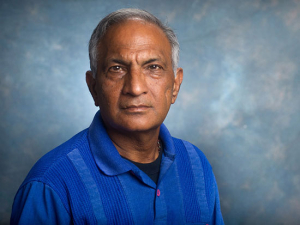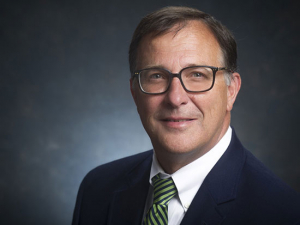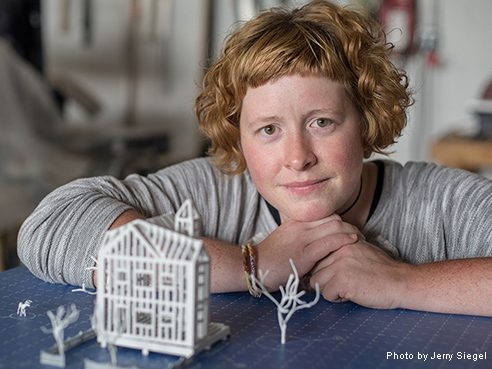 Stacey Holloway, assistant professor of sculptureStacey Holloway
Stacey Holloway, assistant professor of sculptureStacey Holloway
Redefining creativity
Often, sculptures are thought of as tall marble statues in the world’s great historic cities, like Rome or Paris. Stacey Holloway is challenging that perception.
An assistant professor of sculpture in the Department of Art and Art History, Holloway encourages her students to think of sculpture as something than can exist outside the typical art gallery. She has worked with students to use art to make a difference in the community, from building bee houses out of reclaimed and foraged materials for Ruffner Mountain to creating gallery maquettes of the Birmingham Museum of Art to help curators plan exhibits.
Most recently, the department partnered with the Birmingham Water Works to create art from trash found when cleaning up Lake Purdy. This semester, Holloway’s students learned to cast metal and used the trash to create awards that will be given to Birmingham’s water protectors.
“Major trends in sculpture have shifted drastically in the last 30 years and have expanded to include new media, public art and community engagement,” Holloway said. “Because I’m most interested in art that moves outside the white cube gallery and intersects with life, I challenge my students to make work that can be seen by a wider audience and have greater social and ecological impact.”
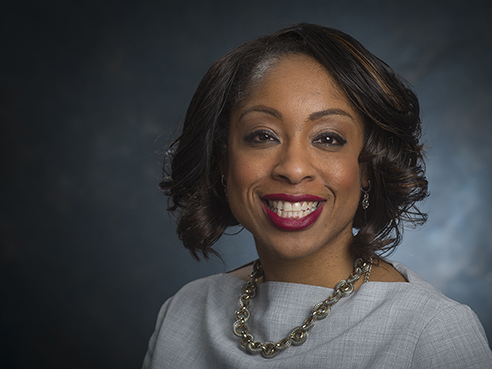 Veronique Zimmerman Brown, project director for GEAR UP AlabamaVeronique Zimmerman-Brown
Veronique Zimmerman Brown, project director for GEAR UP AlabamaVeronique Zimmerman-Brown
Gearing up for excellence
There are nearly 10,000 students in more than 50 schools across Alabama’s Black Belt region, and Veronique Zimmerman-Brown wants to see them all attend college.
In 2014, UAB was awarded a U.S. Department of Education GEAR UP grant to help prepare more low-income students to enter and succeed in post-secondary education during the next seven years.
Zimmerman-Brown is the project director for GEAR UP Alabama, which provides Black Belt students with enhanced curriculum, tutoring, mentoring, summer camps and college tours and provides school administrators and teachers with professional development and mentoring.
“Some students have never left their hometowns,” Zimmerman-Brown said. “By exposing students to different environments with summer camps and college tours, they’re getting to see places and campuses and get a sense of how they’d fit in there.”
Zimmerman-Brown said GEAR UP Alabama can be summed up in essentially one word: hope.
“We want to expose hope,” she said. “We want to help students, teachers, administrators and the community understand the resources within their reach and show them how to use those resources to change their futures. Alabama should not be surprised by the level of excellence that is within the Black Belt.”
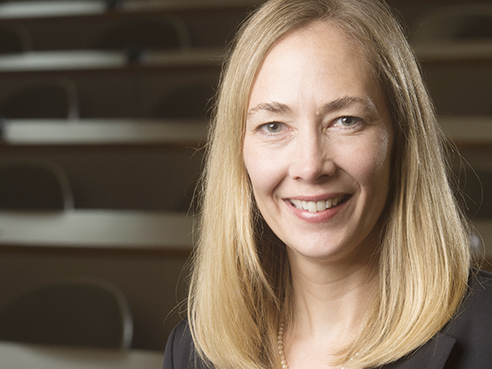 Tina Kempin, director of UAB’s Institute for Human RightsTina Kempin Reuter,
Tina Kempin, director of UAB’s Institute for Human RightsTina Kempin Reuter,
Giving peace a fighting chance
Human rights is a forefront topic, and Tina Kempin Reuter, Ph.D., wants to help UAB join the conversation.
As director of UAB’s Institute for Human Rights and associate professor in the departments of Government and Anthropology, Kempin Reuter is in the process of creating a platform for scholars, activists, students and educators to discuss human rights in the local, national and global context.
That foundation begins with education — learning what human rights are, how to advocate for them and what to do if they are violated. The institute also will help connect UAB to more global human rights issues through its lecture series and pursue research centered on the rights of persons with disabilities and other marginalized groups.
“The institute has an international mission,” said Kempin Reuter, whose research focuses on areas of human rights, disability, ethnic conflict and peacemaking, especially in Europe and the Middle East. “We are trying to connect what’s happening in Birmingham with what is happening in the world. It seems to be a good fit considering what occurred in Birmingham with the Civil Rights Movement. We want to embrace that history while opening it up to a much broader perspective.”
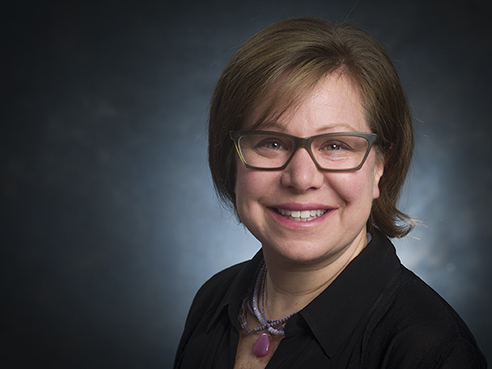 Michele Forman, director of the Media Studies program, College of Arts and SciencesMichele Forman
Michele Forman, director of the Media Studies program, College of Arts and SciencesMichele Forman
Finding equality through a lens
Same-sex marriage has been a hotly contested issue in Alabama for decades, and people from both sides of the aisle have followed along intently. Michele Forman, director of the Media Studies program in the College of Arts and Sciences, added voices of same-sex couples to the debate with a new documentary “Alabama Bound,” which follows the stories of two families fighting for custody of their children.
The documentary was inspired by photographer Carolyn Sherer’s photography series “Living in Limbo: Lesbian Families in the Deep South,” which opened at the Birmingham Civil Rights Institute in 2012. Forman worked closely with co-directors Lara Embry, a clinical psychologist in Birmingham, and Sherer to make the film.
“I’ve seen parents’ love for their child, no matter what form a family takes,” Forman said.
Working with students in Media Studies has helped Forman define her vision and find passion throughout the project.
“The Media Studies program really focuses on telling local stories,” she said. “Much of my work as a filmmaker is formed by my work in the classroom with students. I often find myself inspired by the creativity of the students I meet at UAB.”
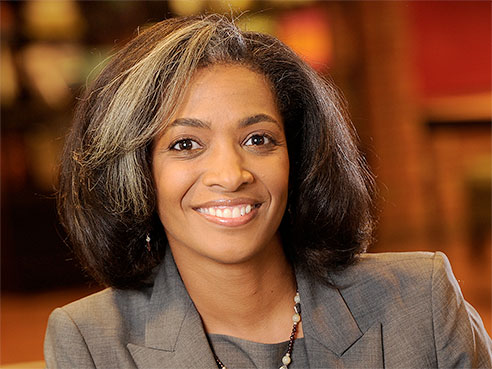 Stephanie Yates, associate professor of finance in the Collat School of Business and director and inaugural Endowed Professor of the Regions Institute for Financial EducationStephanie Yates
Stephanie Yates, associate professor of finance in the Collat School of Business and director and inaugural Endowed Professor of the Regions Institute for Financial EducationStephanie Yates
Fluent in finances
Understanding finance is more than having checking and savings accounts. The decisions people make about their money can affect many aspects of their lives, from their social interactions to their neighborhoods. Stephanie Yates, Ph.D., knows that.
Yates, associate professor of finance in the Collat School of Business and director and inaugural Endowed Professor of the Regions Institute for Financial Education, has been with UAB since 2007. She works with the UAB Employee Assistance and Counseling Center to provide workshops and one-on-one counseling for UAB employees, works in classrooms across the state preparing students for their financial future and volunteers in the community as a resource for people of all ages who want to learn more about finances.
“Being financially educated is quite powerful,” Yates said. “It means you have a greater likelihood of making good decisions with your money in order to realize your financial goals. I want to provide them with a deeper understanding of financial matters so they can build their confidence and enjoy life with few financial worries.”
In case you missed it, read about Women Who Discover, Women Who Serve and Women Who Lead.
